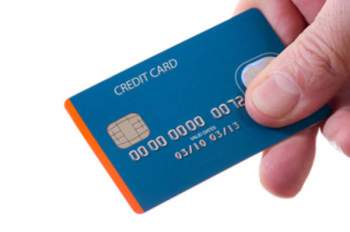
What Are Credit Monitoring Programs

What are Credit Monitoring Programs?
The Federal Trade Commission habitually warns consumers and business owners to the overwhelming negative externalities attached to identity thefts. Victims of identity theft often feel emotional and financial shockwaves that resonate long after their particular situation has been resolved. Typically, a victim of identity theft will be turned down for credit cards, loans and numerous other financial transactions. As a result of these aftereffects, it is strongly suggested that an individual take advantage of the numerous resources available to help curb bouts of identity theft.
Credit monitoring is a technique used to impede identity thieves from accessing personal or financial information. A credit monitoring program will track an individual’s credit records on a regular schedule to ensure that no fraudulent or suspicious actions have been made, which would invariably alter the underlying individual’s credit score.
Credit monitoring programs, upon reviewing credit records, will send alerts to the protected individual when there suspicious activity—like when a creditor inquires about or opens a new account.
These alerts are meant to inform subscribers of potential identity theft; if an individual is notified that a new account is being opened without their authorization they will know that information has been obtained in a fraudulent manner.
Additionally, some computer monitoring programs will guarantee their service and aid customers in resolving issues if identity theft takes places. An effective means to ensure such a policy is to remove subscribers of credit monitoring programs from prescreened credit card offers and other mailings of a similar nature.
Benefits and Drawbacks of Credit Monitoring Programs:
The majority of identity theft victims will not realize the breech of their personal or financial information until a bill collector notifies them of failed payments or they get rejected from opening new accounts. One of the primary advantages of a credit monitoring program is that the software will alert the victim of suspicious activity in an expedited and efficient fashion.
Elucidating on such problems or suspicious activity at an early stage will minimize the damage of identity theft; if an account is breeched at an early time, they can me closed to prevent further activity. Furthermore, a credit monitoring program will mitigate the likelihood of identity theft altogether.
The majority of identity thieves look to extract finances through the use of personal information. Whether by opening a new credit card or fraudulently wiring money to another account, an identity thief aims, in some way, to benefit from the usurping of personal information. To prevent such an act form occurring, a credit monitoring program will constantly observe an individual’s financial actions and credit history to ensure that the subscriber commits only authorized transactions.
The most significant drawback associated to credit monitoring programs is that some of the devices only monitor reports from one credit bureau. The three bureaus, Equifax, Experian and TransUnion possess different information in their records so various fraud signals may go undetected. As a result of this drawback, the Federal Trades Commission recommends that ta prospective subscriber check with the Better Business Bureau and the individual’s local attorney general’s office for complaints before signing up with a particular credit monitoring firm.
NEXT: 7 Ways to Prevent Identity Theft




















